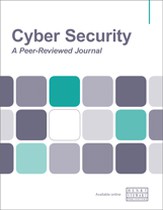Insider threat detection: Where and how data science applies
Abstract
Insider threats are one of the top concerns of enterprise security. Traditional means of addressing general security threats, such as the use of signature matching and correlation rules, fall short when detecting insider threats. New possibilities for detecting insider threats have emerged as a result of the data-driven approach to security problems. Insider threat activities are multifaceted and require that security teams address the problem on multiple fronts. This paper introduces four areas where data science can be applied when building a system that detects threats. These four areas include the use of statistical analysis for anomaly detection, contextual information derivation for network intelligence, specific threat detection use cases, and meta learning for false positive control. Example use cases within each category are described, as well as how data science is used to approach them. The goal of this paper is to provide the general security audience with an overview of data science applications for insider threat detection.
The full article is available to subscribers to the journal.
Author's Biography
Derek Lin is Chief Data Scientist at Exabeam, building data science-driven defence against cyberthreats. His research interests and experiences include anomaly detection, insider threat detection and behaviour analytics. Derek’s prior machine learning works from Pivotal Software include the consultation and building of data science-based solutions for custom security use cases for large enterprises. Before Pivotal Software, Derek was with RSA Security developing analytic systems for risk-based online banking fraud detection, data loss prevention, voice-biometrics security and speech and language processing. Derek holds numerous patents and publications in the areas of IT operations and security. He graduated with a Bachelor’s and a Master’s degree in electrical engineering from the University of Southern California.
